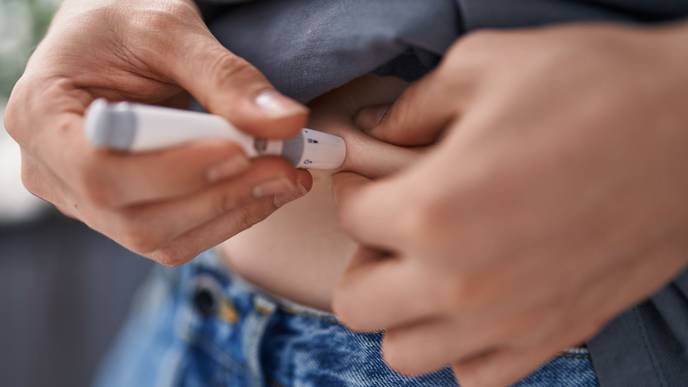ReachMD
Be part of the knowledge.™Patient Surveys Provide Insight into Real-World Adalimumab Biosimilar Use in IBD

A study assessing the real-world impact of using an adalimumab biosimilar to treat individuals with inflammatory bowel disease (IBD) revealed that administering patient questionnaires on patients’ perception of their treatment can be beneficial in pinpointing those at greater risk of discontinuing their treatment.
Inflammtory bowel disease (IBD) is an umbrella term for Crohn disease and ulcerative colitis. The prevalence IBD has increased worldwide over the past few decades, according to the study authors.
The long-term, observational, multicenter PERFUSE study, published in Digestive and Liver Disease, also examined patient willingness to receive training on how to use an adalimumab product and the role of patient-reported outcome measures (PROMs) concerning patients with IBD and adalimumab therapy. The data were collected from October 2018 to November 2020, and the patients were treated with SB5 (Hadlima; Samsung Bioepis).
The primary outcome measure was treatment persistence of SB5 from baseline to month 12, which was collected during routine visits by site staff. Patient-reported outcomes were collected using an electronic patient questionnaire via a secure study-specific web portal. Patients had a month from treatment initiation to complete the questionnaire. The questionnaire collected the following PROMs:
- Patients’ satisfaction with and confidence using SB5
- Perception of their interactions with physicians
- Beliefs about medicine
- Perception of their illness
The study included 406 French patients with IBD, 88 of whom had ulcerative colitis and 318 who had Crohn disease. Additionally, 264 (62.3%) patients had never received biologic therapy before and 152 (37.7%) had previously received a biologic.
Overall, 57.1% (n = 145) and 44.1% (n = 67) of the treatment-naïve and pretreated patients, respectively, answered the questionnaire. Treatment-naïve patients were given training on treatment more often compared with those who’d receive a biologic before (86.9% vs 31.3%, respectively; P < .05). All subgroup satisfaction scored were high. Twelve-month persistence on SB5 was significantly higher for those who responded to the questionnaire compared with those who had not (68.0% vs 52.3%; P < .05). Patients who responded were found to have better perception of their illness (odds ratio, 1.02; P < .05).
Some disparities were observed between the pretreated and treatment-naïve cohorts. Although almost all naïve patients were trained on the proper use of the subcutaneous injection device for SB5, most pretreated patients were not, either because training was not offered or was not offered nearly as often as it was for treatment-naïve patients. Patient training practices were site-dependent, suggesting that some cites may experience underlying issues preventing patients training. The authors suggested that a multidisciplinary patient education practice involving physicians and nurses can significantly improve the patient experience.
“Indeed, there seems to be a lack of support during switches, possibly because patients have already been educated for their first subcutaneous treatment. Patients and physicians perhaps consider that there is no need for specific training for the device, which is debatable. Regardless, recommendations are that all patients should be adequately informed on any newly prescribed treatment and these results show that application of these recommendations must be improved, especially when switching,” the authors noted.
The study had some limitations, including the observational real-world nature of the analysis and some of the results being site dependent. Additionally, the reasons for treatment discontinuation as well as data on safety and adverse events were outside the scope of the analysis.
Reference
Bouhnik Y, Carbonnel F, Fumery, et al. The PERFUSE study: The experience of patients receiving adalimumab biosimilar SB5. Dig Liver Dis. Published online June 10, 2023. Accessed September 19, 2023. doi: 10.1016/j.dld.2023.05.025
Facebook Comments